- Nature / Scenery
- Gourmet
Agriculture for Living in the Natural Cycle
Located in the eastern part of the Seto Inland Sea, Awaji Island is known in Japanese mythology as the “Island of the First Creation,” where Japan was said to have been born. With its warm climate year-round, beautiful nature, and easy access via the Akashi Kaikyō Bridge from Honshu, it is also a popular resort destination.
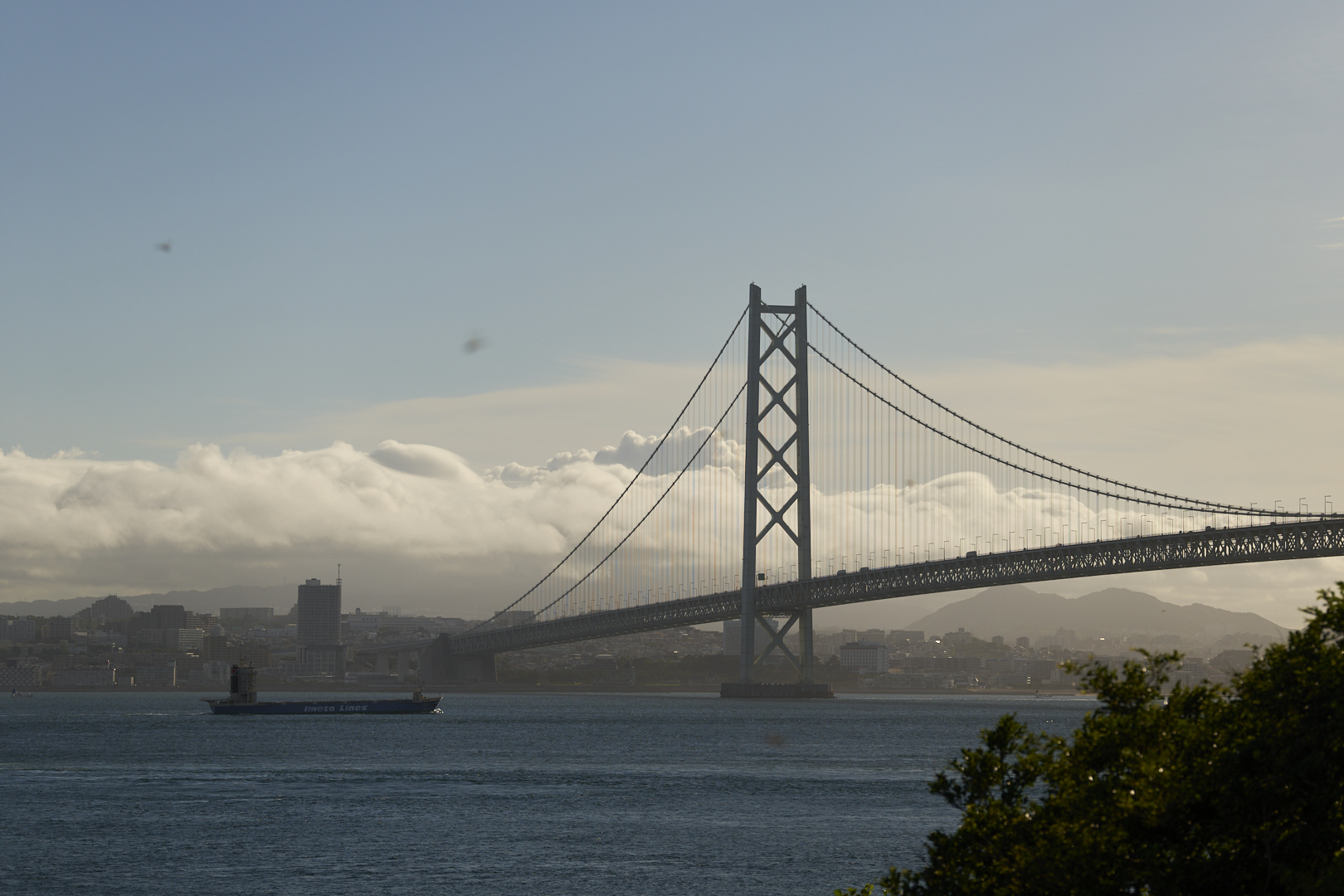
View of the Akashi Kaikyō Bridge from Awaji Island.
Awaji Island is also a place of abundant food, with a food self-sufficiency rate exceeding 100%. It is a treasure trove of famous agricultural and livestock products, such as onions, lettuce, beef, milk, sea bream, and conger eel, known throughout Japan. In this environment, “Awaji Nature Lab & Resort” opened in 2021, based on the belief that true abundance lies in food. It is a nature-circular garden, utilizing a vast area of about 38,000 square meters in the northern part of Awaji Island.
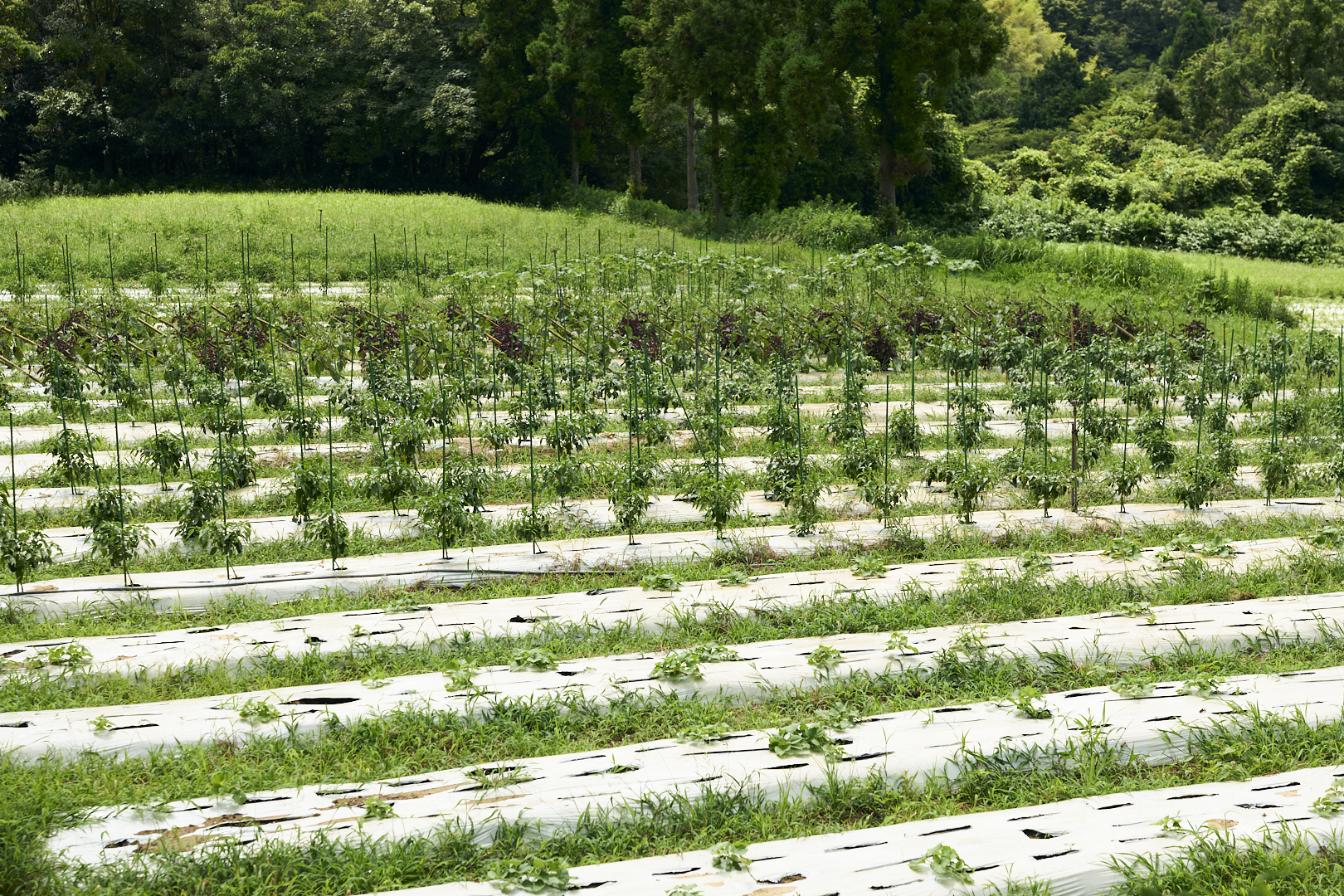
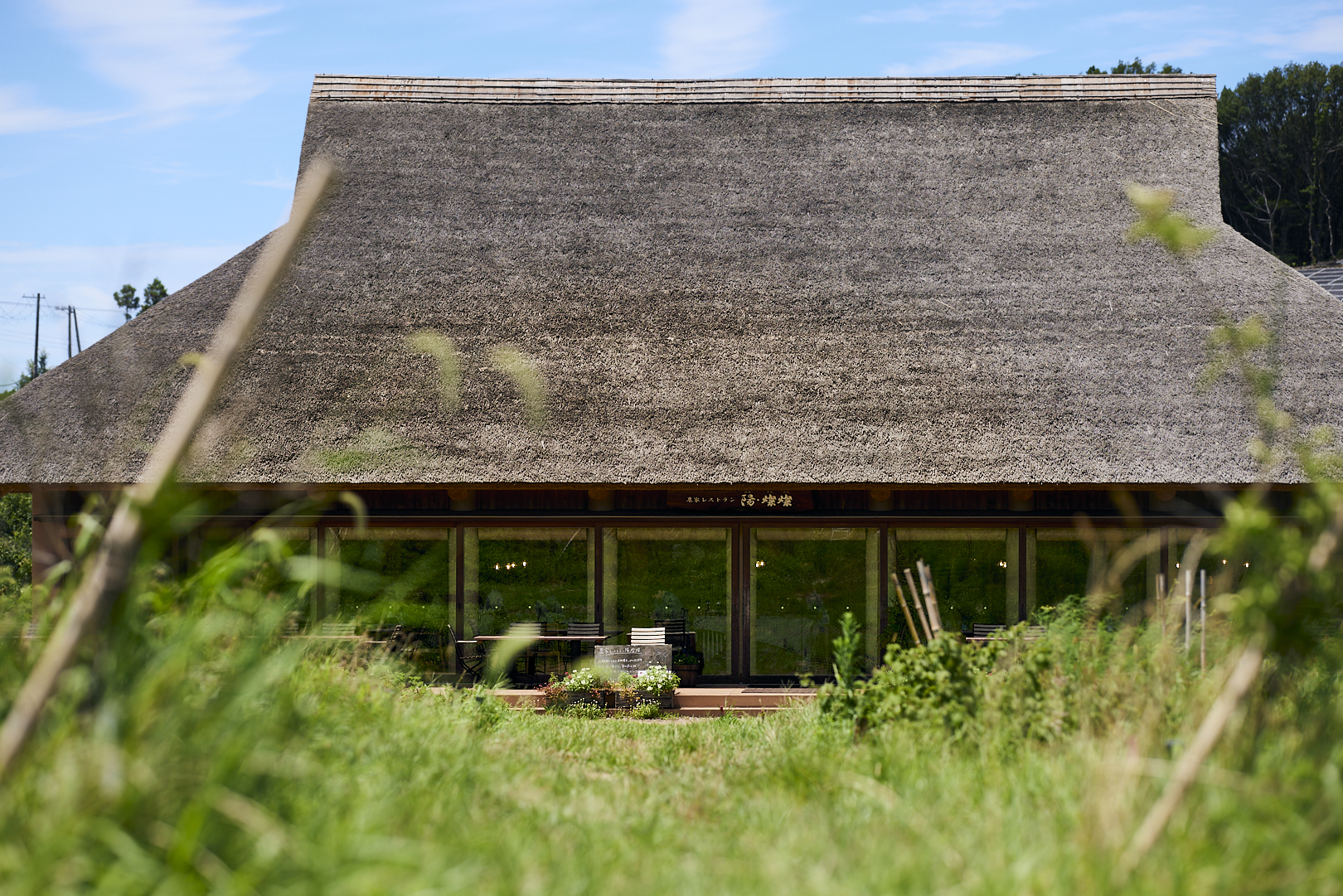
The site features an area where vegetables are grown using sustainable farming practices, and there is also a farm-to-table restaurant, “Harusansan,” where guests can enjoy the vegetables harvested from the garden.
“Thinking about the next 50 years, I want to solve social issues through agriculture,” says Murata, the farm manager at Awaji Nature Farm. One of these issues is reducing waste. Organic waste from the restaurant is collected and turned into compost, which is then used to grow vegetables in the same soil. This is the sustainable farming cycle they are practicing.
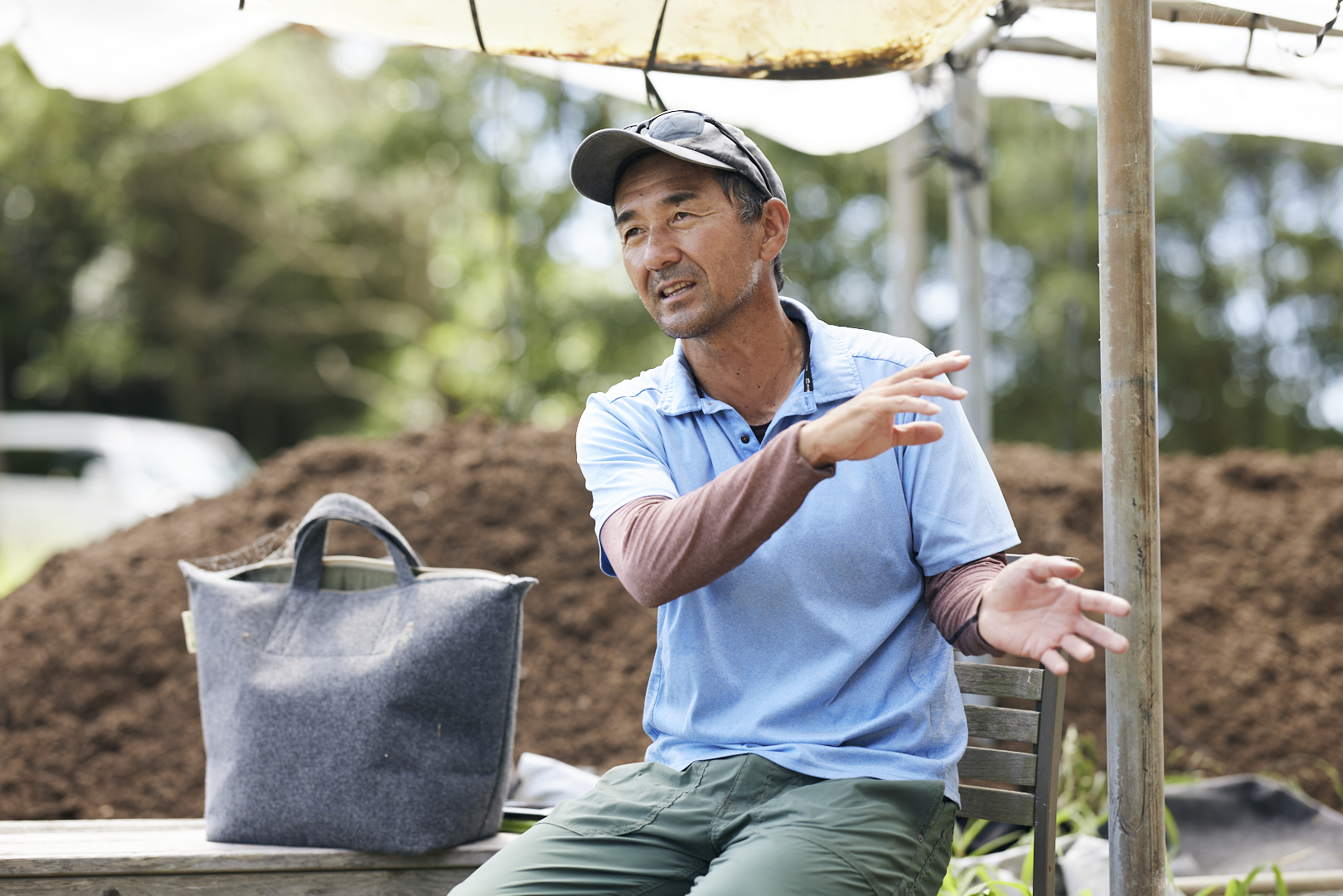
Murata and his team have spent several years mixing compost into the soil of this area, which was originally a mandarin orange orchard, gradually transforming it into rich, healthy soil.
Good soil requires light, air, and moisture. About 30 to 40 kg of organic waste is mixed daily into bedding made from leaves, rice bran, and rice husks, where microorganisms break it down and ferment it. It takes just under a year for it to become fully composted, but when mixed in balance, it results in fluffy, nutrient-rich compost.
“Currently, nearly 90% of Japanese agriculture relies on conventional farming using pesticides and chemical fertilizers. While chemical fertilizers improve the appearance and color of vegetables, they also lead to oversized, ‘metabolic’ vegetables. They absorb nitrogen, which causes bitterness and harsh flavors. The reason many children dislike vegetables today is mostly because of that bitterness and pungency. The vegetables grown here have a smooth, refreshing taste with no bitterness, so even children who dislike peppers will say, ‘Wow, it’s not bitter, it’s delicious!'”
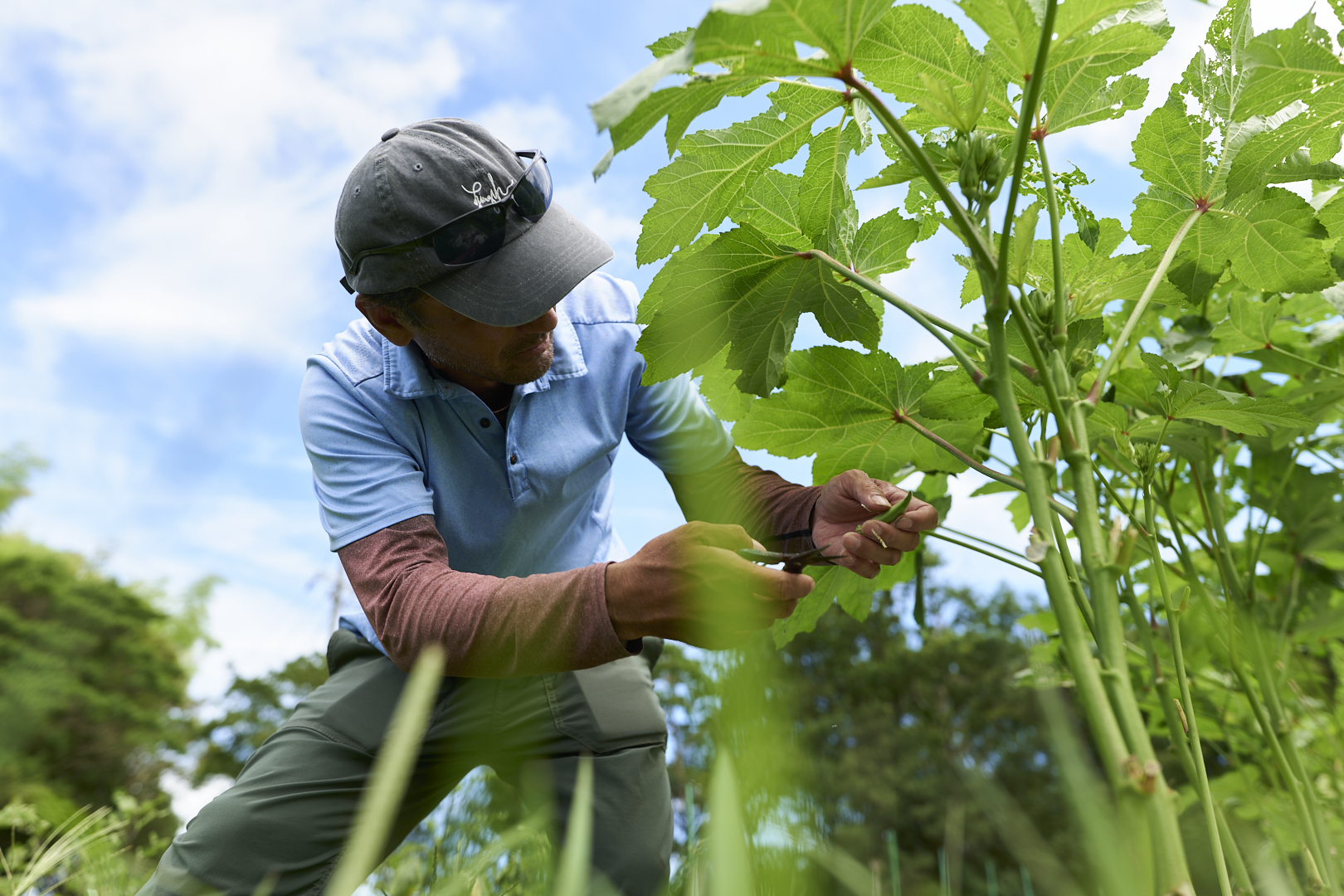
In the summer, colorful mini tomatoes in red, green, and yellow, along with eggplant, peppers, kale, and okra, are harvested. There are also herb gardens and vineyards for wine production.
Another initiative of Awaji Nature Lab & Resort is to increase the number of people involved in agriculture. To help visitors experience the charm of farming with all five senses, they offer workshops such as harvest experiences and Japanese herb courses, held right in the fields.
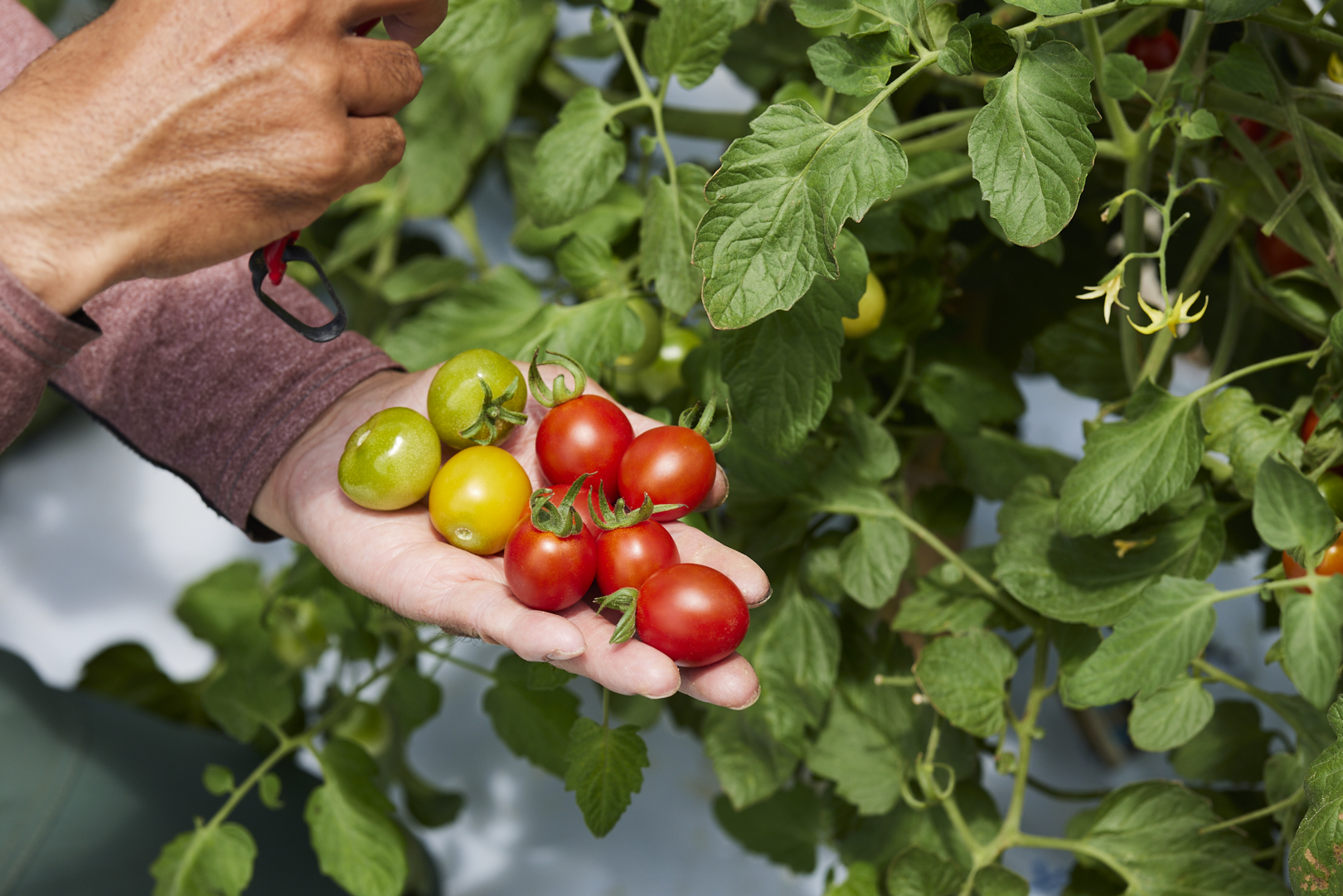
Check if the stem is standing firmly and if the skin color is not dull. The ideal color is not too light but rather a slightly dark shade, indicating that the tomato is fully ripe and delicious. While learning how to identify these signs, you can search for the perfect, tasty tomatoes.
During the harvest experience, participants first learn about compost and soil creation, then take a tour of the fields. Afterward, they can select and pick vegetables grown in that soil to taste. The experience concludes with a meal at the on-site restaurant, “Harusansan,” where freshly harvested vegetables are featured in delicious, seasonal dishes.
After refreshing yourself by touching the soil, enjoy a meal featuring vegetables as the main focus, promoting both physical and mental well-being.
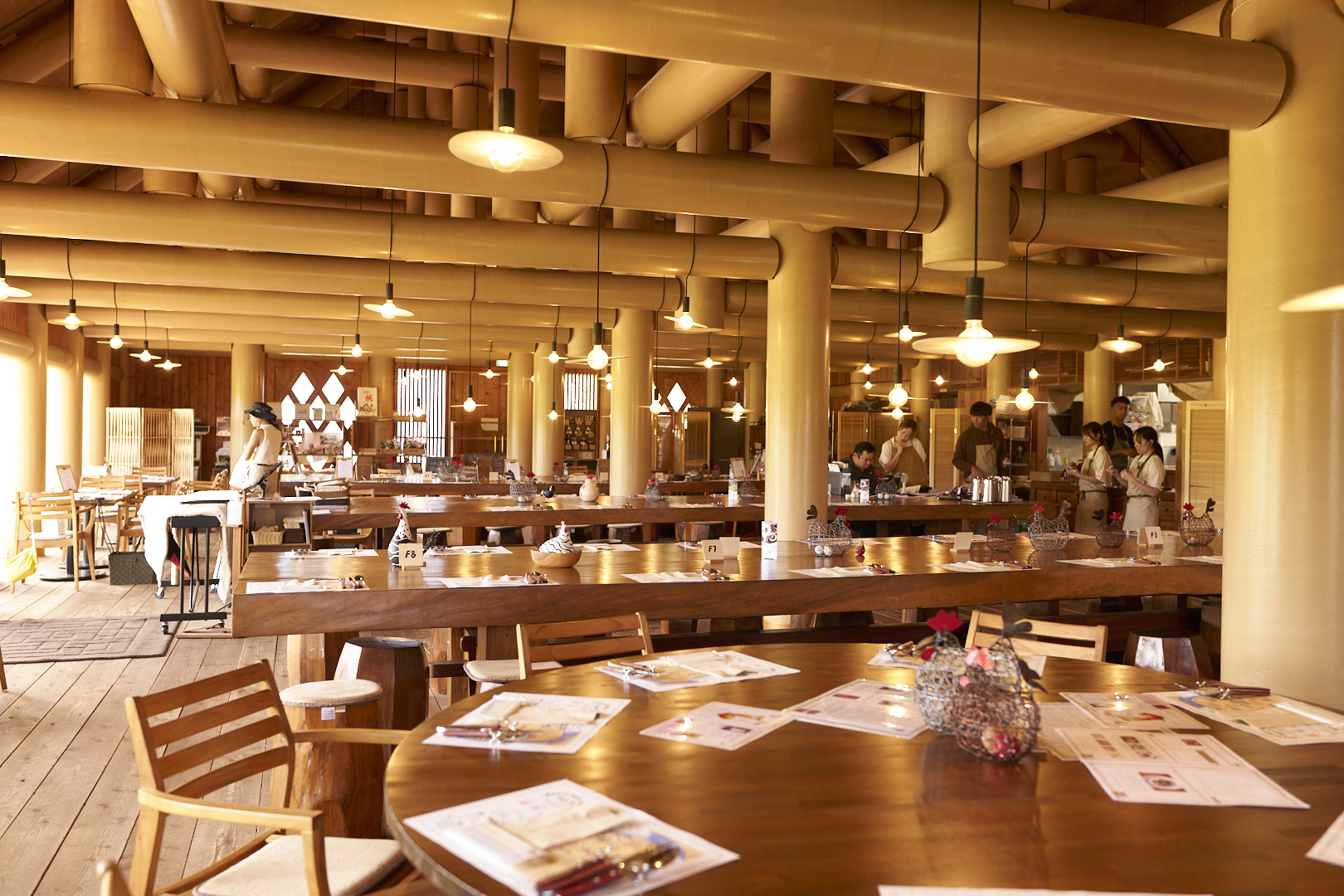
The building was designed by Shigeru Ban, a Pritzker Prize-winning architect. It incorporates environmentally friendly materials, such as using recycled paper tubes for the pillars.
The farm-to-table restaurant “Harusansan,” which aims to achieve the ultimate farm-to-table experience, can be reached by walking through the fields.
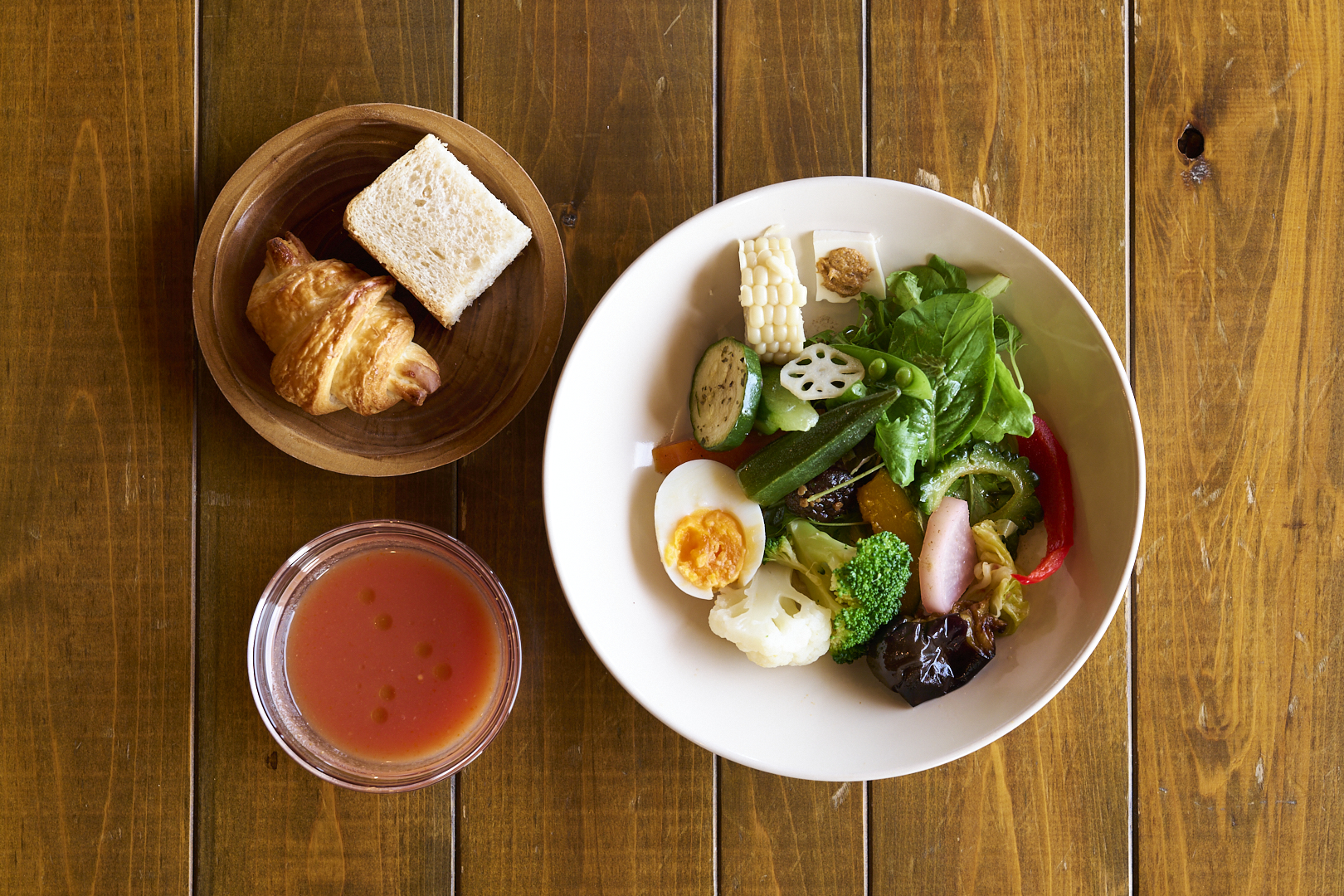
The most popular dish, the “Harusansan Set,” features seasonal vegetables as the main focus, accompanied by a salad, soup, homemade bread, and a main dish, allowing guests to savor the fresh ingredients from Awaji Island.
True to its concept of “vegetables as the main focus,” the appetizer salad features about 16 different kinds of vegetables, vibrant in color and generously portioned. Each vegetable is prepared in a way that highlights its unique characteristics, allowing you to enjoy a variety of textures. The vegetables are finished with a sprinkle of salt from Awaji Island to enhance their natural flavors. The soup is a gazpacho made by pureeing vegetable scraps to create a thick, rich texture. The dish is packed with a deep, flavorful taste, especially from the unconventional tomatoes and carrots used.
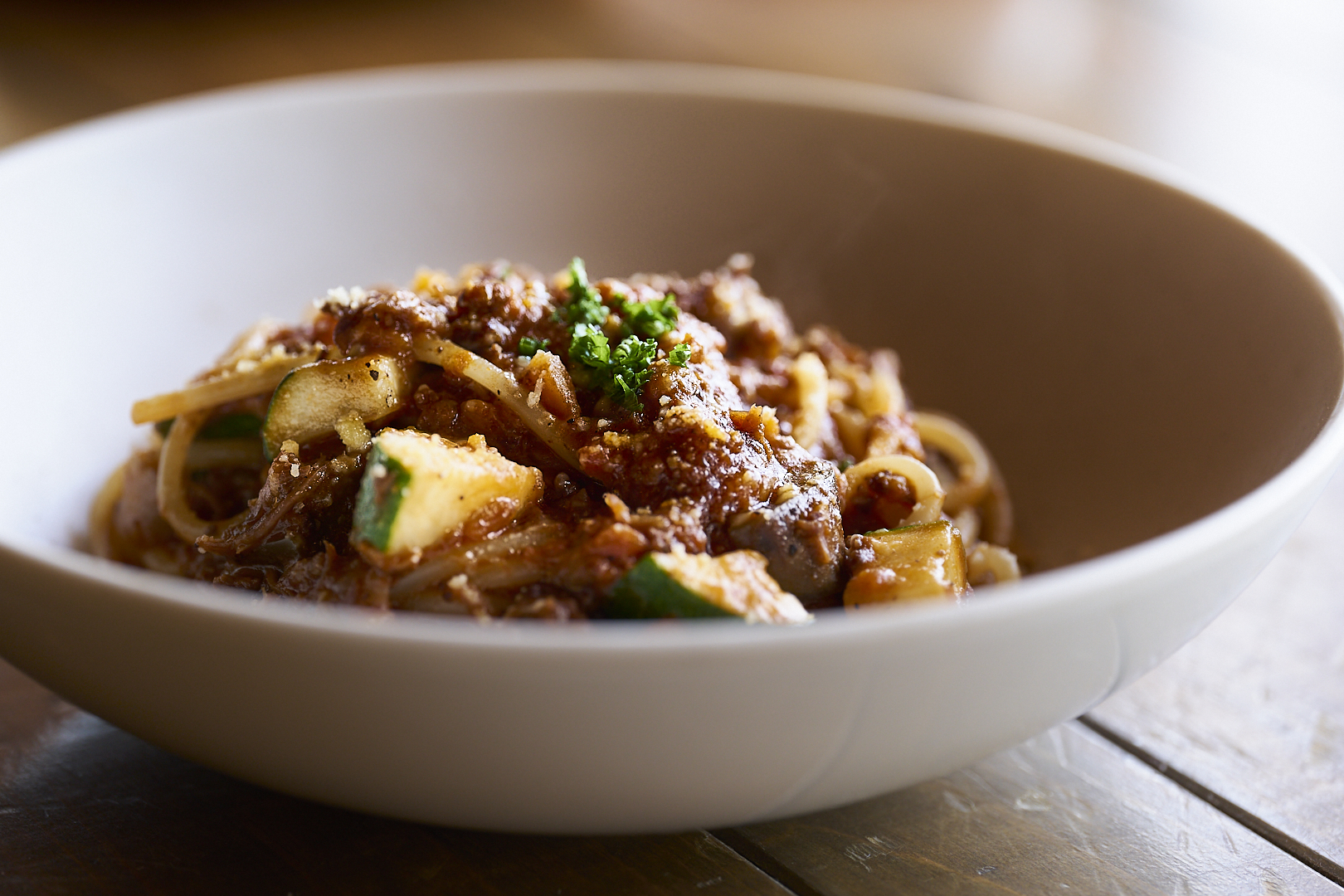
One of the main dishes is a hearty Bolognese made with plenty of Awaji beef and chunks of vegetables.
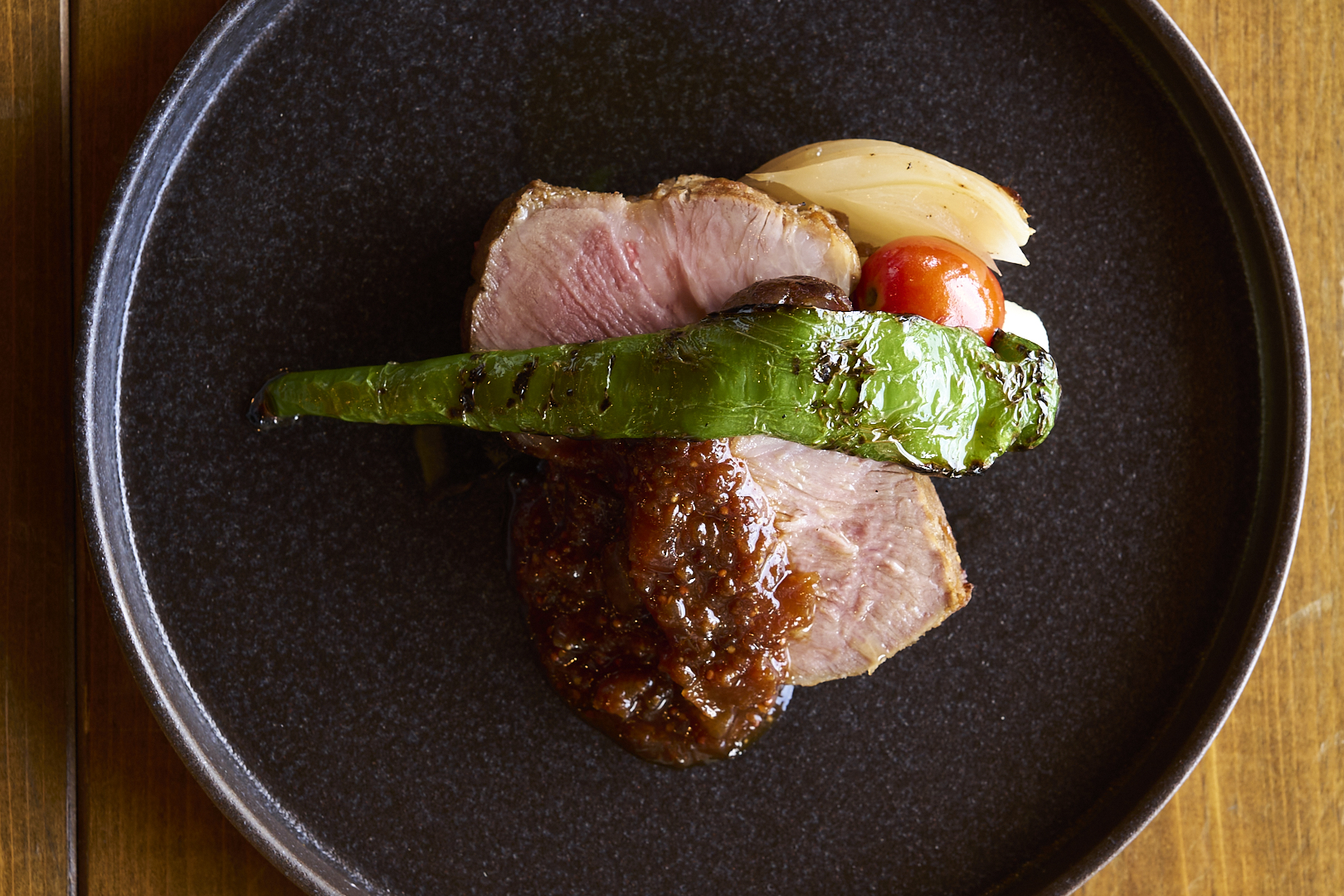
The roasted Ebisu Mochi pork, raised in the natural environment of Minami-Awaji City under plenty of sunlight and fed with high-sugar bananas, has a subtle sweetness to it.
In the future, 11 accommodation units will open in front of the restaurant, offering an experience of “living with agriculture.” Each unique cottage, designed by different designers, will be equipped with its own garden. Guests can stay while enjoying a next-generation agricultural experience focused on health and environmental sustainability.
Farm-to-table restaurant“Harusansan”
Address: 1510-4 Nojima Tokiwazu Genhachi, Awaji City, Hyogo Prefecture
Phone: 0799-70-9082
Hours: 11:00 AM – 6:00 PM (last order at 5:00 PM, lunch served until 3:00 PM)
*Dinner is available by reservation only
Closed: Wednesdays



